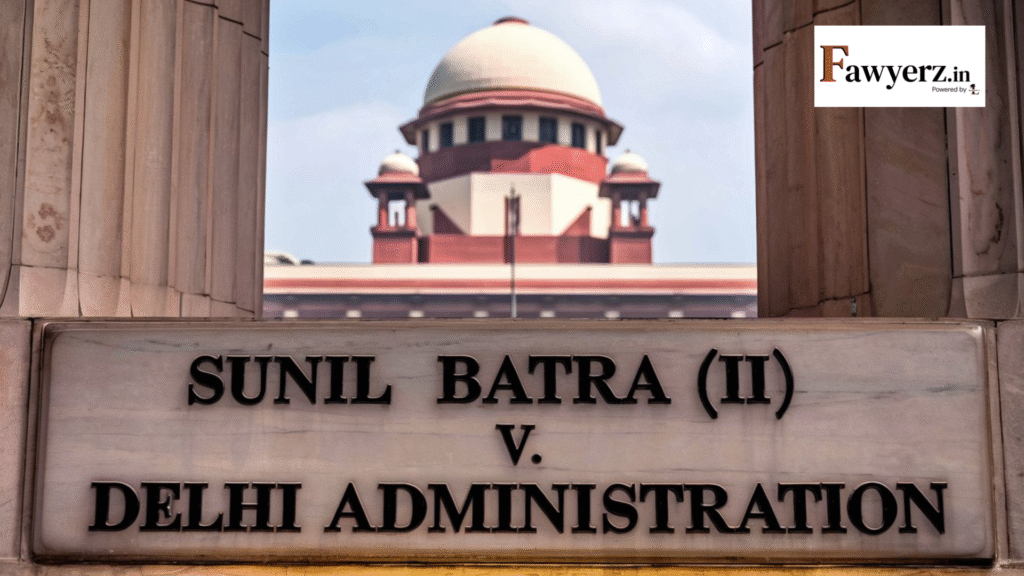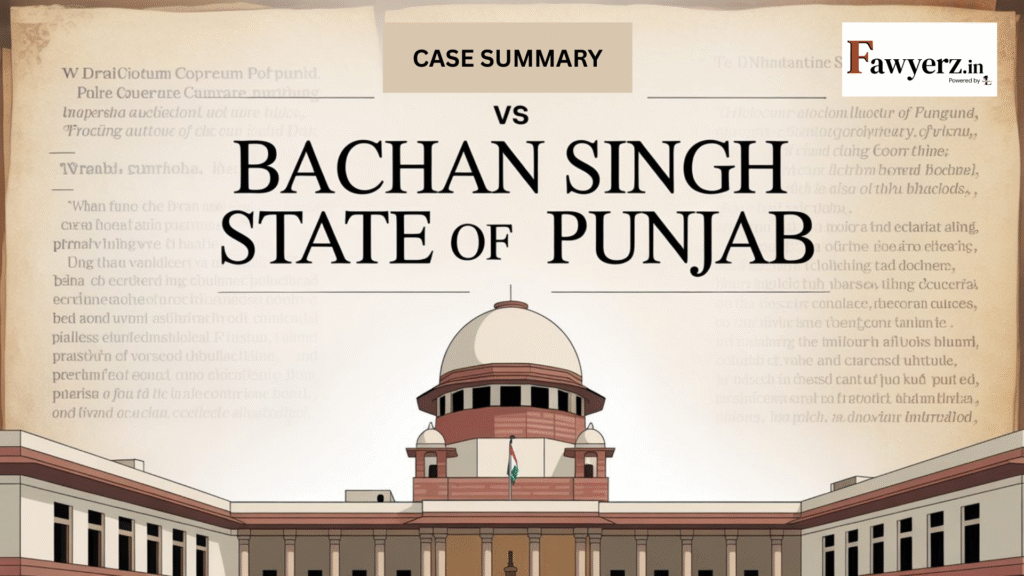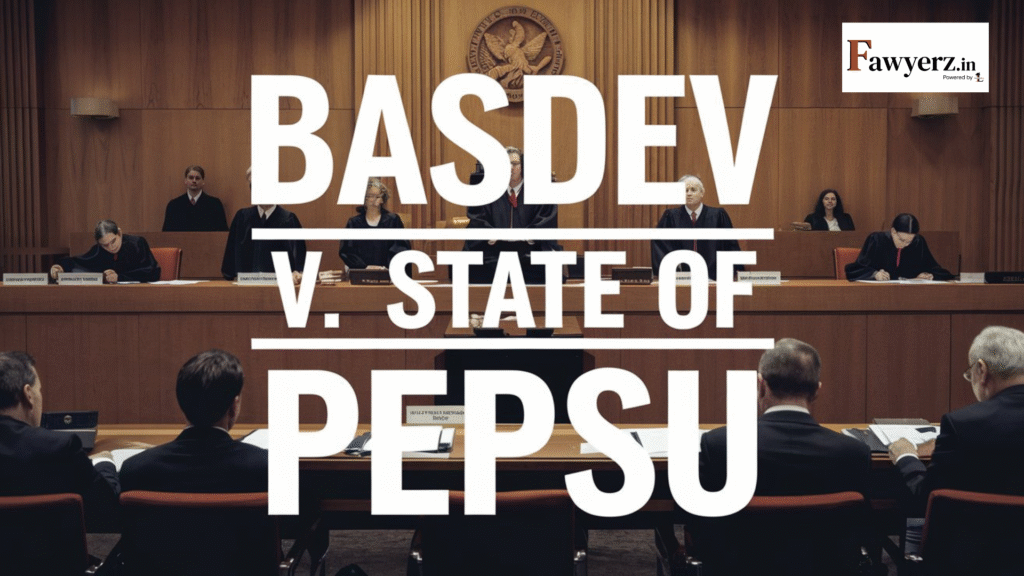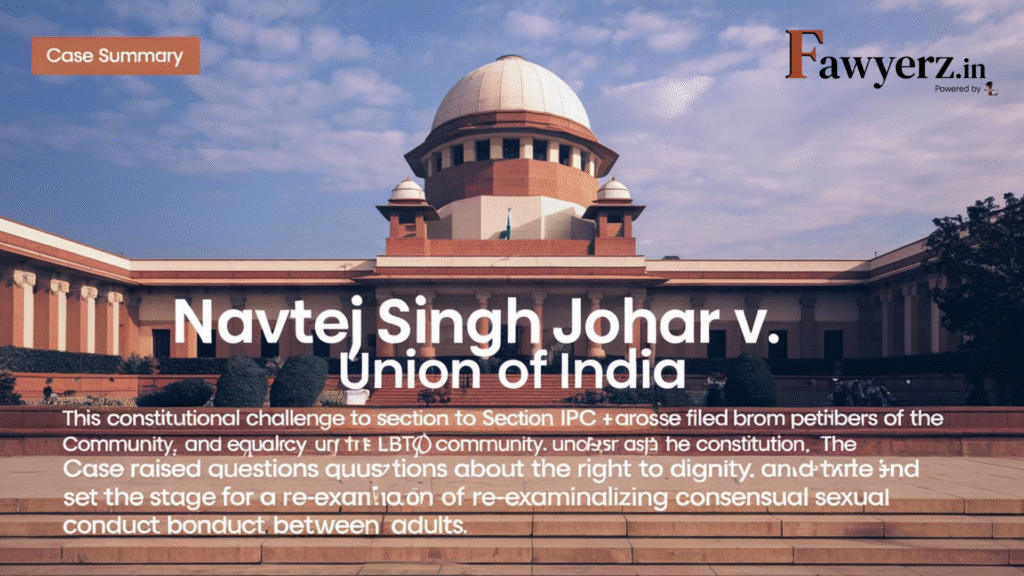Sunil Batra (II) v. Delhi Administration 1979 (Case Summary)
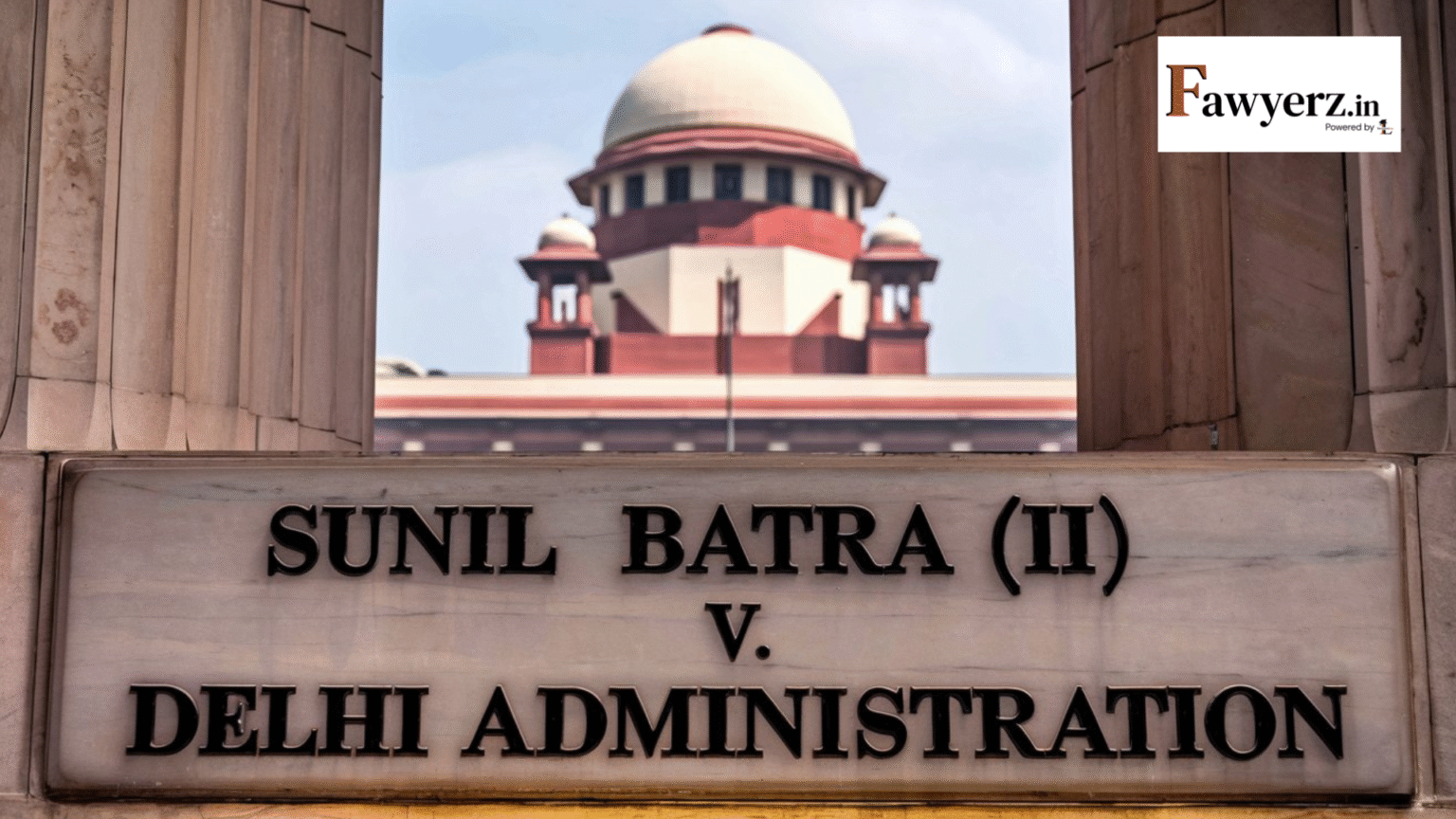
This case originated from a letter written by a death row inmate and brought attention to the treatment of prisoners, particularly those in solitary confinement. The Supreme Court had to determine whether constitutional rights extend to prisoners and to what extent the judiciary could intervene in matters of prison administration.
Table of Contents
ToggleFacts of Sunil Batra (II) v. Delhi Administration
- Sunil Batra, a convict sentenced to death, was confined in Tihar Jail, Delhi.
- He wrote a letter to a Supreme Court judge, alleging inhuman treatment and torture of fellow inmates by prison authorities.
- The letter was treated as a writ petition under Article 32 of the Constitution.
Issues framed
- Whether the Supreme Court have jurisdiction under Article 32 to entertain a petition concerning the rights of a convict?
- Whether fundamental rights under Articles 14, 19 and 21 apply to prisoners?
- Whether Sections 30(2) and 56 of the Prisons Act, 1894, violate Articles 14 and 21 of the Constitution?
Judgment of Sunil Batra (II) v. Delhi Administration
The Supreme Court relied on Article 14, Article 19, Article 21 and Article 32 of the Constitution of India and the Prisons Act, 1894 specifically Section 30(2) which relates the confinement of prisoners sentenced to death.
The Supreme Court affirmed that prisoners do not lose their fundamental rights upon incarceration. It held that Articles 14, 19 and 21 are applicable to all individuals, including prisoners. The Court emphasized that the rights to life and personal liberty are not extinguished by imprisonment.
Regarding Section 30(2) of the Prisons Act, the Court acknowledged that it permits solitary confinement for prisoners under a death sentence. However, it clarified that such confinement should not be arbitrary or inhumane and must be justified by the circumstances. In Batra’s case, since his death sentence was not final and conclusive, the application of Section 30(2) was deemed inappropriate. The Court condemned the practice of torture and emphasized the need for oversight and accountability within the prison system.
The Supreme Court held that prisoners retain their fundamental rights under the Constitution and any infringement upon these rights is subject to judicial scrutiny. It ruled that the solitary confinement of Sunil Batra, whose death sentence was not finalized, was unjustified under Section 30(2) of the Prisons Act. The Court directed that he should not be subjected to such confinement until further orders. Additionally, the Court emphasized the need for prison reforms and the humane treatment of inmates, reinforcing the principle that the Constitution’s protections extend to all individuals, regardless of their incarceration status.


